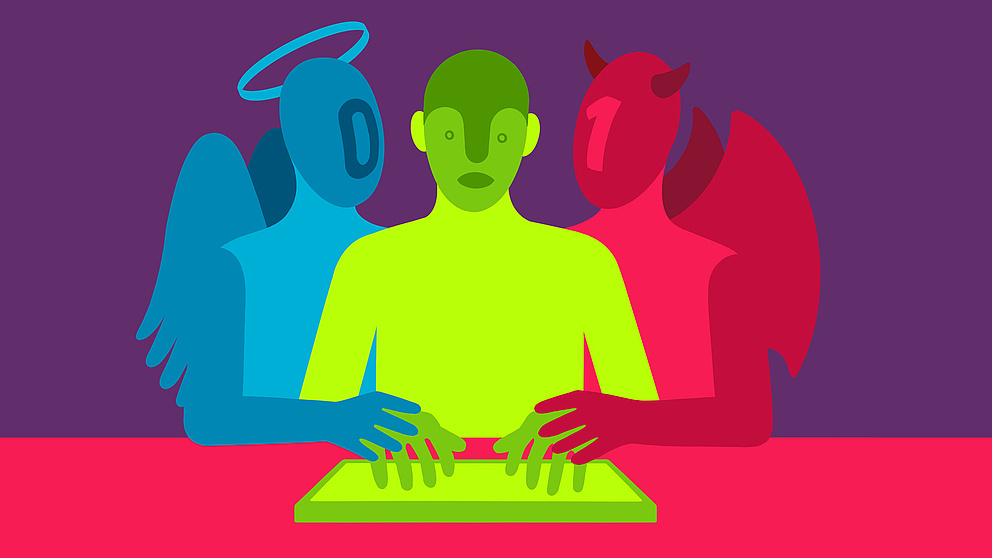

Contact
Press, Communications and Marketing
Tel.: +49 228 833-144
Fax: +49 228 833-441
presse[at]avh.de
Enthusiasm for all the things artificial intelligence can do is enormous – but people are also worried about the risks inherent in a technology that could outstrip us. AI experts in the Humboldt Network analyse what AI can already do today, what it still has to learn and what risks it involves.
According to the AI expert Holger Hoos, scientific progress in AI research is key to our future quality of life. “If we fall behind now, we’ll get left behind as a society, too.” The Alexander von Humboldt Professor for Artificial Intelligence thinks “Europe isn’t doing enough to realise the ambitions formulated by the European Commission, for example.” He does, however, believe that human-centred AI could become a major locational advantage for Germany and Europe, and therefore suggests establishing a large-scale research facility, a “CERN for AI”, to attract talents from all over the world.
To introduce new perspectives into technological developments for a more equal future for us all – this is the goal of the Humboldtian Priya Goswami and her app Mumkin, which addresses the victims of female genital mutilation. An AI is the first point of contact, “a kind of training partner to practise conversations for later in real life,” says Goswami.
In the digital world, artificial intelligence often has the effect of reinforcing opinions. It creates filter bubbles, promotes radical tendencies and influences elections. José Renato Laranjeira de Pereira investigates these dark sides of AI. “AI can promote racism, homophobia and radicalisation, partly because it reinforces long-held prejudices. For example, it can allocate black people a lower credit rating,” the Brazilian legal scholar explains. That is why he is working on strategies to reinforce transparency and user rights.
How useful or harmful AI really is, whether it supports people or weakens democracy depends on the kind of AI we create. The debate about this is already well underway and shows that Germany and Europe could become pathbreakers in values-based AI that serves society.
Artificial intelligence is a focus of the Humboldt Foundation’s sponsorship and communications activities: in 2020, Alexander von Humboldt Professorships for Artificial Intelligence were introduced in addition to the Alexander von Humboldt Professorship, Germany’s most highly endowed research award. They may also address social, legal and ethical aspects of artificial intelligence.
In the Humboldt Foundation’s podcast, “AI and Us”, Humboldt Professors and other AI experts discuss the issues around AI research.
(Press release 24/2022)
Every year, the Alexander von Humboldt Foundation enables more than 2,000 researchers from all over the world to spend time conducting research in Germany. The Foundation maintains an interdisciplinary network of well over 30,000 Humboldtians in more than 140 countries around the world – including 63 Nobel Prize winners.
